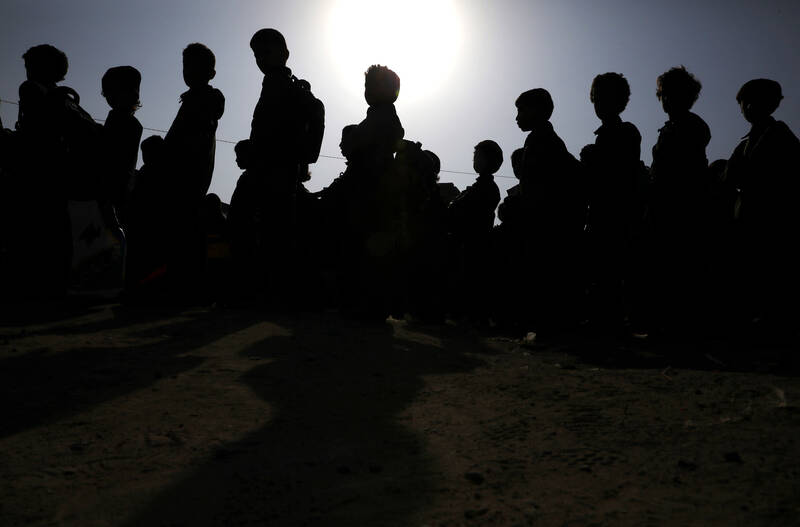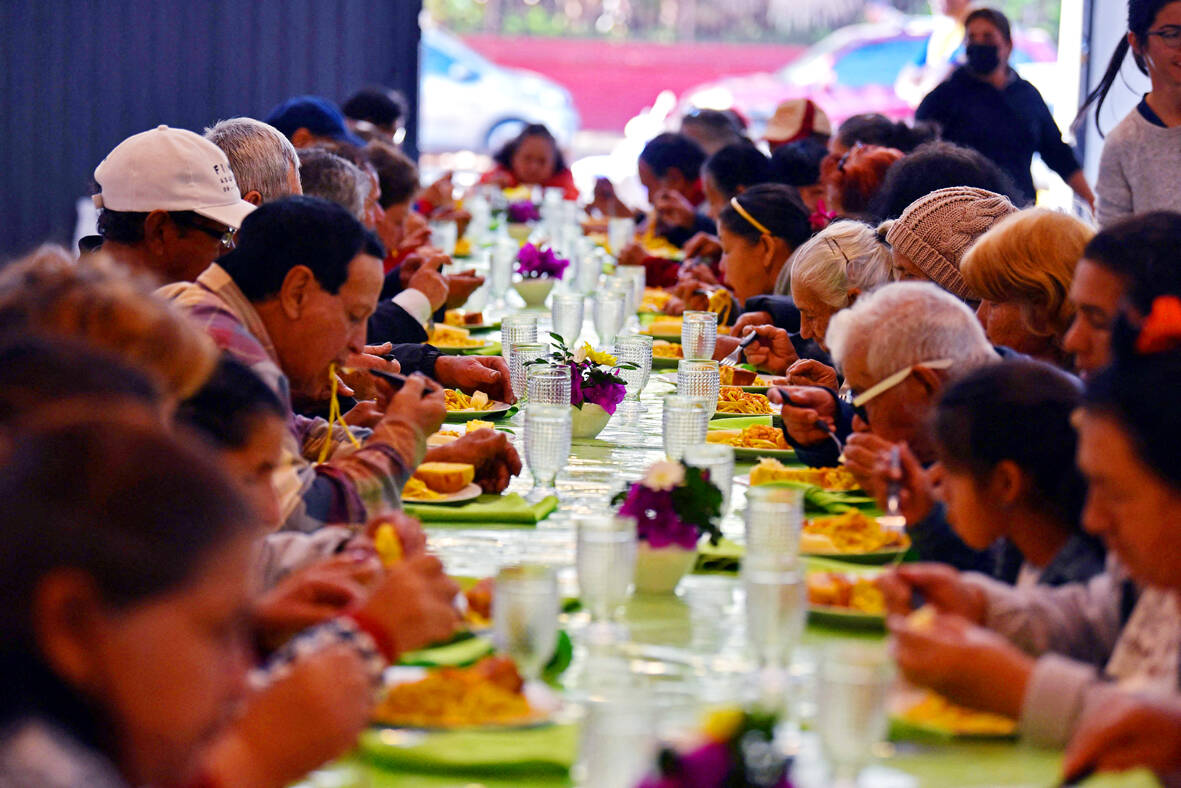In an alarming assessment, the head of the UN warned world leaders Tuesday that nations are “gridlocked in colossal global dysfunction” and are unprepared or unwilling to tackle the challenges that threaten humanity’s future — and the planet’s.
“Our world is in peril — and paralyzed,” UN Secretary-General Antonio Guterres said.
Speaking at the opening of the General Assembly’s annual high-level meeting, Guterres made sure to emphasize that hope remained. But his remarks reflected tension and concern, citing the war in Ukraine and multiplying conflicts around the world, the climate emergency, the dire financial situation of developing countries and setbacks in UN goals for 2030, including ending extreme poverty and ensuring quality education for all children.

Photo: EPA-EFE
Guterres also warned of “a forest of red flags” around new technologies despite promising advances to heal diseases and connect people. Guterres said social media platforms are based on a model “that monetizes outrage, anger and negativity.”
Artificial intelligence he said, “is compromising the integrity of information systems, the media and, indeed, democracy itself.”
The world lacks even the beginning of “a global architecture” to deal with the ripples caused by these new technologies because of “geopolitical tensions,” Guterres said.

Photo: AFP
His opening remarks came as leaders from around the world convened at UN headquarters in New York after three years of pandemic interruptions, including an entirely virtual meeting in 2020 and a hybrid one last year. This week, the halls of the UN are filled once more with delegates, though they are required to wear masks except when speaking, to help prevent COVID-19 spread.
Guterres started with a note of hope. He showed a video of the first UN-chartered ship carrying grain from Ukraine — part of the deal between Ukraine and Russia that the UN and Turkey helped broker — to the Horn of Africa, where millions of people are on the edge of famine. He said it was an example of promise and hope “in a world teeming with turmoil.”
He stressed that cooperation and dialogue were the only path forward — two fundamental UN principles since its founding after World War II. And he warned that “no power or group alone can call the shots.”
“Let’s work as one, as a coalition of the world, as united nations,” he urged leaders gathered in the vast General Assembly hall.
It’s rarely that easy. Geopolitical divisions are undermining the work of the UN Security Council, international law, people’s trust in democratic institutions and most forms of international cooperation, Guterres said.
“The divergence between developed and developing countries, between North and South, between the privileged and the rest, is becoming more dangerous by the day,” the secretary-general said. “It is at the root of the geopolitical tensions and lack of trust that poison every area of global cooperation, from vaccines to sanctions to trade.”
Before the global meeting opened, leaders and ministers wandered the assembly hall, chatting individually and in groups. It was a sign that, despite the fragmented state of the planet, the UN remains the key gathering place for presidents, prime ministers, monarchs and ministers.
Nearly 150 heads of state and government are on the latest speakers list.
At the top of the agenda for many: Russia’s invasion of Ukraine, which not only threatens the sovereignty of its smaller neighbor but has raised fears of a nuclear catastrophe at Europe’s largest nuclear plant in the country’s now Russia-occupied southeast.
Over objections from Russia and a few of its allies, the assembly voted last Friday to allow Ukrainian President Volodymyr Zelensky to pre-record his speech because of reasons beyond his control — the “ongoing foreign invasion” and military hostilities that require him to carry out his “national defense and security duties.”
President Biden, representing the host country for the United Nations, is traditionally the second speaker. But he has been attending Queen Elizabeth II’s funeral in London, and his speech has been pushed to Wednesday morning.

In Taiwan there are two economies: the shiny high tech export economy epitomized by Taiwan Semiconductor Manufacturing Co (TSMC, 台積電) and its outsized effect on global supply chains, and the domestic economy, driven by construction and powered by flows of gravel, sand and government contracts. The latter supports the former: we can have an economy without TSMC, but we can’t have one without construction. The labor shortage has heavily impacted public construction in Taiwan. For example, the first phase of the MRT Wanda Line in Taipei, originally slated for next year, has been pushed back to 2027. The government

July 22 to July 28 The Love River’s (愛河) four-decade run as the host of Kaohsiung’s annual dragon boat races came to an abrupt end in 1971 — the once pristine waterway had become too polluted. The 1970 event was infamous for the putrid stench permeating the air, exacerbated by contestants splashing water and sludge onto the shore and even the onlookers. The relocation of the festivities officially marked the “death” of the river, whose condition had rapidly deteriorated during the previous decade. The myriad factories upstream were only partly to blame; as Kaohsiung’s population boomed in the 1960s, all household

Allegations of corruption against three heavyweight politicians from the three major parties are big in the news now. On Wednesday, prosecutors indicted Hsinchu County Commissioner Yang Wen-ke (楊文科) of the Chinese Nationalist Party (KMT), a judgment is expected this week in the case involving Hsinchu Mayor Ann Kao (高虹安) of the Taiwan People’s Party (TPP) and former deputy premier and Taoyuan Mayor Cheng Wen-tsan (鄭文燦) of the Democratic Progressive Party (DPP) is being held incommunicado in prison. Unlike the other two cases, Cheng’s case has generated considerable speculation, rumors, suspicions and conspiracy theories from both the pan-blue and pan-green camps.

Stepping inside Waley Art (水谷藝術) in Taipei’s historic Wanhua District (萬華區) one leaves the motorcycle growl and air-conditioner purr of the street and enters a very different sonic realm. Speakers hiss, machines whir and objects chime from all five floors of the shophouse-turned- contemporary art gallery (including the basement). “It’s a bit of a metaphor, the stacking of gallery floors is like the layering of sounds,” observes Australian conceptual artist Samuel Beilby, whose audio installation HZ & Machinic Paragenesis occupies the ground floor of the gallery space. He’s not wrong. Put ‘em in a Box (我們把它都裝在一個盒子裡), which runs until Aug. 18, invites